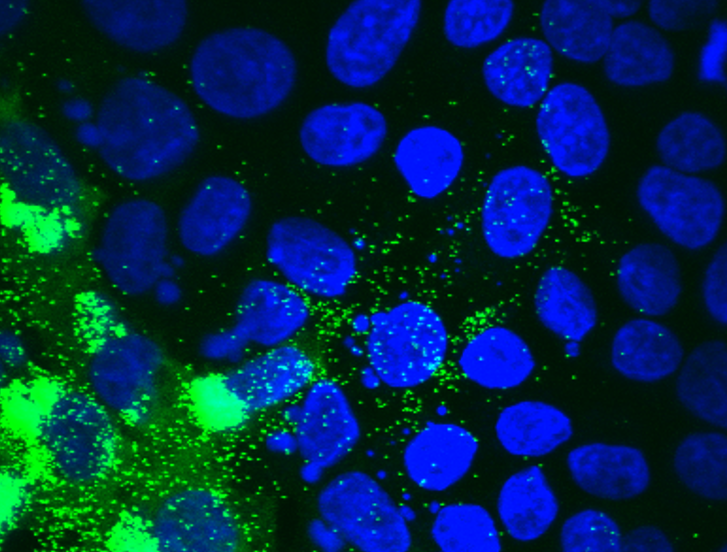Links to external sources may no longer work as intended. The content may not represent the latest thinking in this area or the Society’s current position on the topic.
Poxvirus research after smallpox eradication: new findings with an old vaccine

Leeuwenhoek Lecture 2020 given by Professor Geoffrey L. Smith FRS.
In 1980 smallpox was declared eradicated after a global vaccination campaign. Today, only two labs in the world retain variola virus, the cause of smallpox, one in the USA and one in Russia – and the World Health Assembly has recommended these virus stocks be destroyed when essential research with variola virus is complete.
In this lecture, Professor Geoffrey L. Smith FRS, winner of the 2020 Leeuwenhoek Medal, described how smallpox was eradicated and what happened afterwards. Despite eradication, research with vaccinia virus, the smallpox vaccine, has endured. This research has provided new ways to make vaccines, and revealed how our cells respond to virus infection and how the virus escapes these defenses.
The award
The Leeuwenhoek Medal and Lecture was originally established to recognise excellence in the field of microbiology but now also includes excellence in bacteriology, virology, mycology and parasitology, and microscopy. The lectureship was named after the Dutch microscopist Antonie van Leeuwenhoek FRS, often referred to as the ‘Father of Microbiology’, and is supported by a bequest from George Gabb. Originally it was held annually, and from 2006 to 2018 it was awarded triennially, but it is now awarded biennially. The lecture was first given in 1950. The medal is of bronze, is awarded biennially and is accompanied by a gift of £2,000.
Enquiries: contact the Events team.

